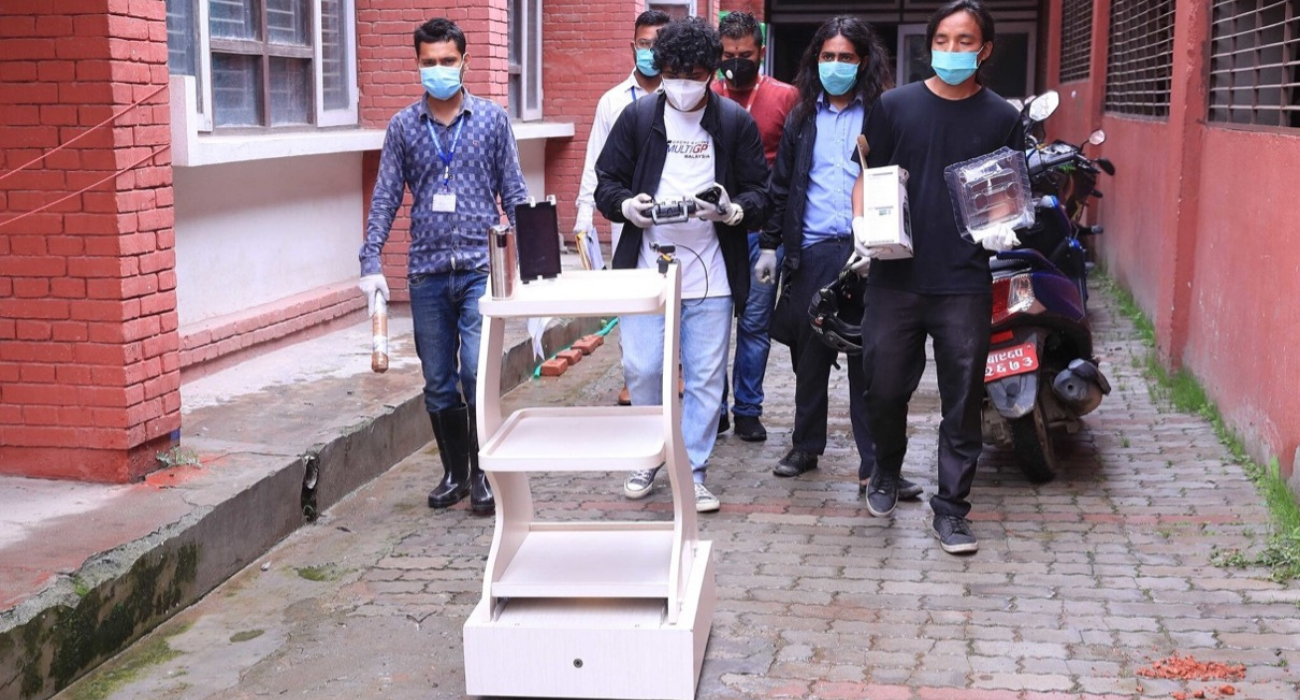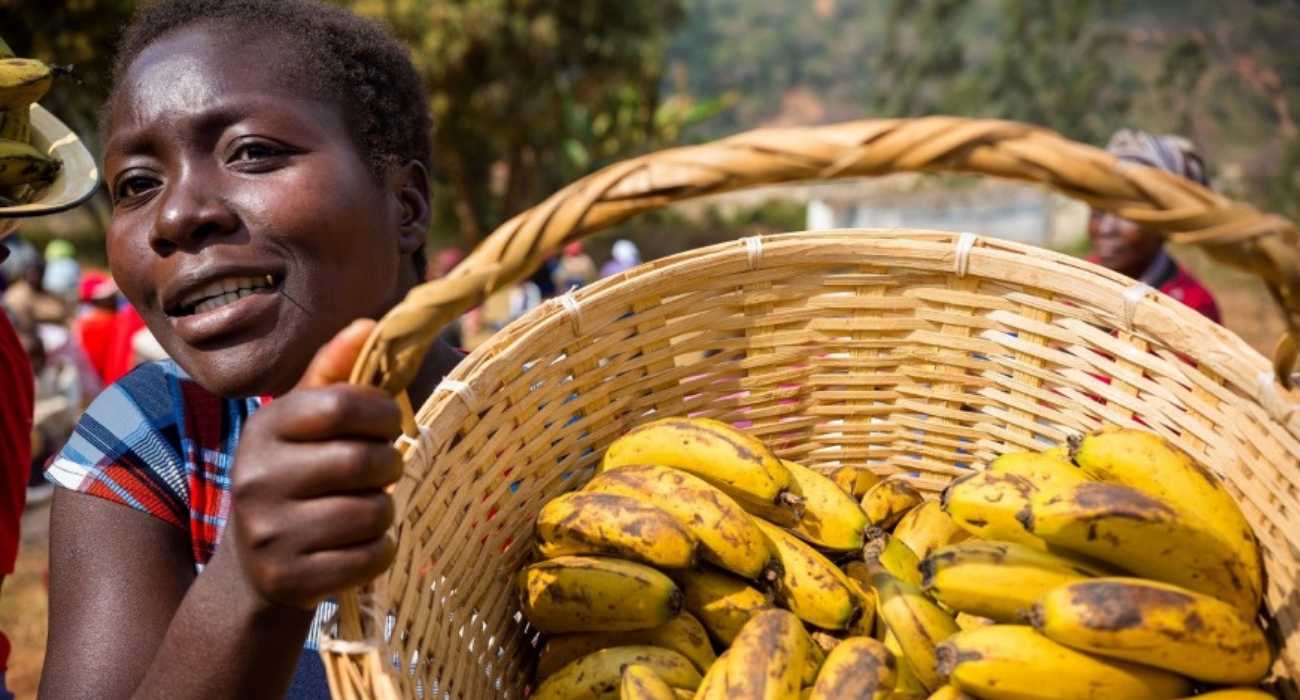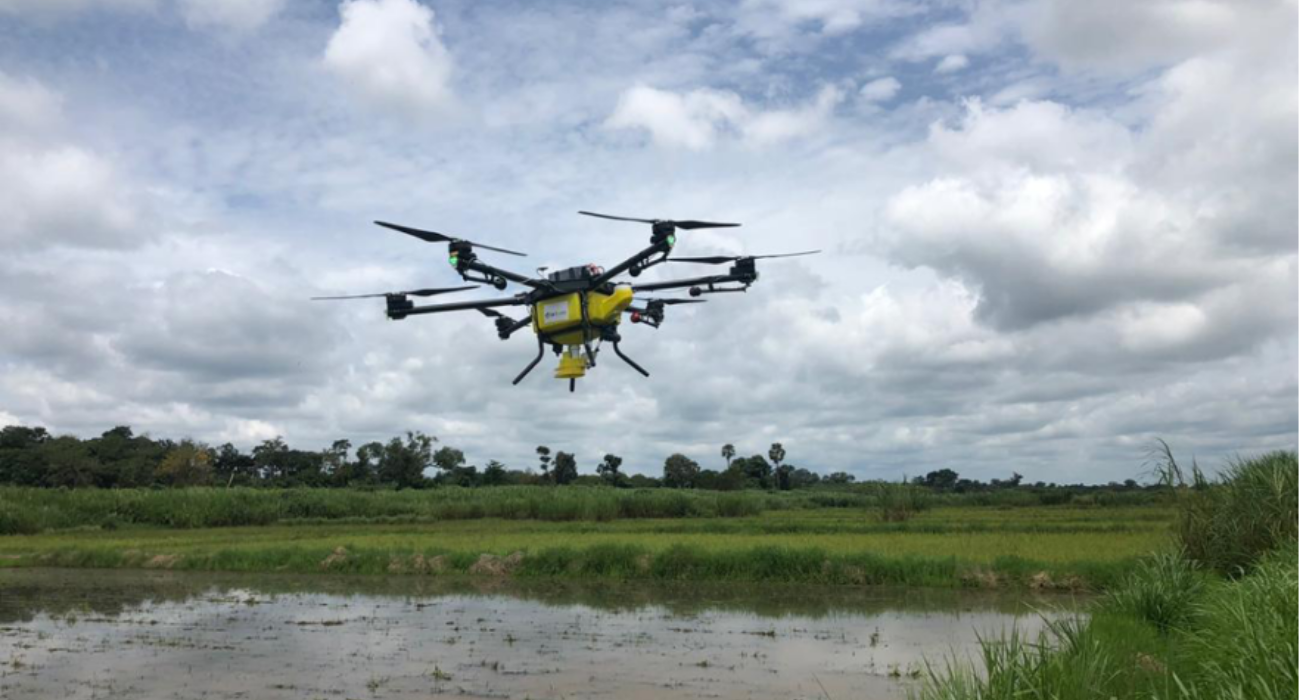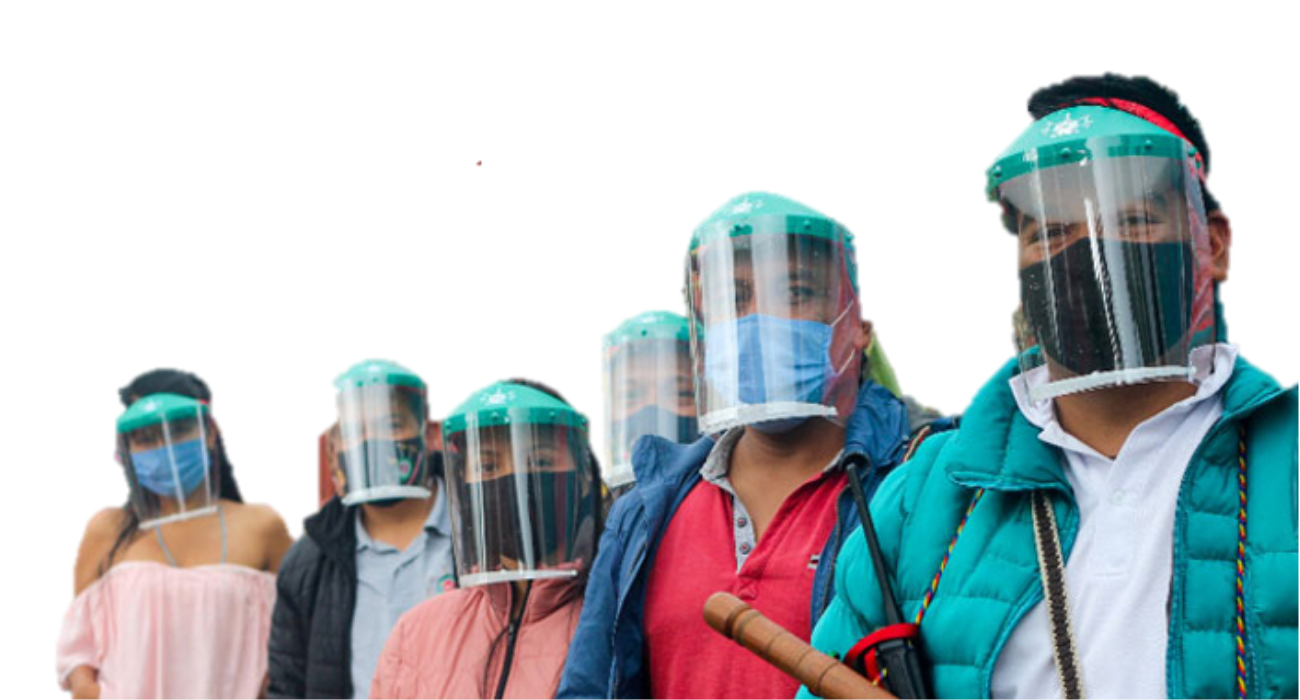Author: Emily Anderson, Partnerships Advisor, UNDP Accelerator Labs
A raven circles a verdant orchard where ripe, candy-colored apples, pears, and plums shine in the sun. Two children and I scan the scene with awe and determination – we must gather all the fruit before the pesky raven can get to it.
This post-COVID dreamscape is brought to us by a board game for toddlers called Orchard, where players pool resources and collectively harvest fruit before a predatory bird steals it. My two-year-old, Asher, loves this game. The first time we played, the rules confused me. The players work together towards a shared goal? We can all win? I was impressed by the values this game imparts to children and equally ashamed of my default to zero-sum competition.
My First Orchard game from HABA.
I would suggest that those of us who work on advancing partnerships for sustainable development have something to learn from this classic board game. Perhaps with greater attention to non-transactional partnerships that prioritize and reinforce personal connections, we can establish a more inclusive foundation for collective action towards the SDGs.
Partnerships for development
Partnership has been a watchword in sustainable development for decades – implied in the traditional term “international cooperation” and formalized more recently in SDG 17. When we envision partnerships, we typically think about governments working together across borders, interacting in fora like the UN and WTO, and potentially tapping into civil society for implementation, the wealth of the private sector, or expert knowledge at top universities. [SB1] Development partnerships also imply transaction – namely the flow of resources from a wealthy core to a much poorer periphery.
After three years and the expansion to 91 Labs in 115 countries, we have learned a lot about network learning, collective intelligence, foresight, frugal innovation, positive deviance and informality. We have also realized that the most dynamic, high-impact partnerships are the Accelerator Labs’ engagements with their local communities – rather than these “usual suspects.”
Wanting to learn more, we conducted a study across the Lab Network to identify, map and analyze the types of partnerships the Accelerator Labs, together with their respective Country Offices, are building. Much of what we found points to a new way of “doing” partnerships – as well as pathways to that other lionized watchword – scale – in sustainable development.
The UNDP Accelerator Labs act as conveners, partnering with usual and unusual actors.
Unusual suspects
The UNDP Accelerator Labs established 531 partnerships in 2021. These partnerships range from helping the government of the Democratic Republic of the Congo (DRC) develop a technology and innovation framework for the Ministry of Research and Technological Innovation, to working with waste picker associations in Paraguay to generate ethnographic insights for Country Office programs.
88% of Labs are working with new partners – actors with whom UNDP in country had no prior relationship. These include start-ups, informal sector groups (market vendor associations, waste pickers, fisherfolk), entrepreneurship hubs, grassroots innovators, social enterprises, companies and think tanks.
48% of Labs are working with the private sector – encompassing many small businesses in fields including tech, agriculture, and engineering as well as a few giant multinationals like Nestle and Standard Chartered bank.
While the Labs are working with new actors, they are also forging new types of relationships that are non-transactional, participatory, and bottom-up. As the Labs pull together unusual coalitions of non-traditional actors, knowledge is flowing into UNDP, rather than primarily outward.
This route runs local: grassroots innovators as partners
As the Labs convene unusual actors to expand their understanding of complex development problems, they are supporting UNDP to expand its network of partners and portfolio of potential solutions. According to an independent evaluation conducted in in 2021, “The Labs’ ability to prioritize local relationships with unusual subjects over the usual big players is positively shifting practice towards grassroots local solutions and ownership.”
For example, as part of COVID-19 response efforts, the UNDP Nepal Accelerator Lab established an exchange between partners that drew on the local robotics community and hospitals. Through this networking function, local actors developed a pilot robot that successfully delivered food and non-urgent supplies to patients to encourage physical distancing in hospitals.
Pilot robot delivery to hospitals. Photo credit: UNDP Nepal
The UNDP Accelerator Labs are taking a refreshing, unconventional approach to “getting the right people in the room” to tackle complex problems. Last year, the Philippines Lab joined the government to build a National Plan of Action on marine litter, bringing together a highly unusual coalition comprised of executives from global companies (think: Coca-Cola and Proctor & Gamble) and fisherfolk, who brought life to the devastation caused by marine litter. As the Lab reported, this unconventional approach “allows a deeper sense of empathy. Policy has to matter too to those on the ground.” As a result, both the national government and the UNDP Country Office are institutionalizing a portfolio approach around these issues.
UNDP’s innovation train
Partnerships with small local actors – women’s market cooperatives, start-up drone companies, app developers – that disrupt “business as usual” and enhance the way UNDP does sustainable development. Surveys of UNDP leadership and interviews with a dozen Labs indicate that these new partnerships are enriching UNDP programming by bringing in new perspectives, encouraging uptake of a portfolio approach, and driving scale.
- PORTFOLIOS: Working with a diversity of partners intuitively goes hand in hand with building portfolios – suites of multiple complementary, simultaneous interventions that together can shift complex systems. Thanks to the Labs’ engagements with new actors, UNDP has been able to make connections and form “systems-level” insights. For example, UNDP Pakistan and the Regional Innovation Center in Bangkok adopted a portfolio approach to the circular economy as a result of the Pakistan Lab’s convening of new partners, including Unilever, Nestle and start-ups, to tackle plastic waste.
- SCALE: Half of the Labs in our first cohort brought in new funding and UNDP leadership tells us that bringing in new partners is the number one capability of the Labs that added value to UNDP. For example, the UNDP India Accelerator Lab partnered with the private sector to help transform the national spice sector – worth $3.6B in annual exports – through applying blockchain technology.
- COVID-19 RESPONSE: Partnerships have enabled UNDP to respond more nimbly and effectively to emergent global phenomena, namely COVID-19. When the pandemic hit, the Labs’ new partnerships brought in digital delivery methods – which became increasingly critical as the pandemic exposed and exacerbated the “digital divide,” or the ways that connectivity drives inequality.
UNDP Zimbabwe, for example, brought together an unusual coalition of companies and informal sector workers that enabled UNDP to better respond to the pandemic’s impact on food insecurity. When COVID-19 hit, the Lab examined how vendors would be able to keep food moving and ensure supply chains were efficient enough to withstand future crises. Leveraging these partnerships, the Lab devised a system to bridge the digital divide between the informal sector and the formal economy through data collection and sharing and linking vendors with suppliers, transporters, warehouses, retailers, consumers and other partners in the food supply value chain. This digital project was embedded into UNDP as part of a nationwide program - the Safe Markets Program, which aims to boost the resiliency of informal markets and supply chains.
"We need to look at people as our partners. They have the capacity to mobilize. They gave us the opportunity to find data that avoided bureaucracy. The vendor associations created WhatsApp groups and gathered information they were willing to share with us.” –UNDP Zimbabwe Accelerator Lab
Informal vendors hold the key to understanding food security in Zimbabwe. Photo credit: UNDP Zimbabwe
- DIGITAL: Digital partnerships have positioned the Labs as “feet on the ground” for implementing and fostering an enabling environment for UNDP’s major corporate priority, digitization. UNDP’s Chief Digital Office now relies on Lab staff as Digital Advocates in country offices as well as the source of scalable Digital X projects. For instance, the UNDP Lebanon Accelerator Lab enabled an agile response to the Beirut Blast of 2020, as three days after the explosion, a partnership with the Surge Data Hub allowed them to leverage a data pipeline from social media for emergency response, which continues to be used today. In another digital example, the Cote d’Ivoire Lab’s partnership with SKT AeroShutter, an AI-enabled drone operator, secured valuable geospatial data to fight deforestation. Reflecting on this digital partnership, the Lab said:
“This was only possible by giving voice to non-traditional partners. This approach provokes ‘wows’ and questions from our partners such as: ‘is this really possible?’ The Lab's new approaches make it possible to position UNDP today as an ideal partner.”
Fighting deforestation in Cote d’Ivoire with drone imagery. Photo credit: SKT AeroShutter
A return on learning partnerships
Emerging evidence from the Labs indicates a return on this investment in learning-based partnerships. Building on the work of their Lab, UNDP Colombia worked with a tech company to create augmented reality experiences that enabled the Country Office to assess socio-economic impacts of COVID-19 in remote areas. Intrigued by the approach, the local USAID mission decided to get involved and invested $9.8 million in UNDP Colombia to connect a value chain of stakeholders and mass produce essential protective gear locally. The Bogotá Environment Secretariat and mayor’s office leveraged USAID’s initial investment with an additional $14 million.
Based on the Labs’ operating costs, the Colombia Lab’s work indicates an impact of learning as $333 returned for every $1 invested. This case also highlights the Labs’ capacity to legitimize and grow emerging solutions and experimental approaches within UNDP and among a range of external partners.
Emerging evidence of ROI: UNDP Colombia Life Helmets -- $1 invested, $333 returned.
Partnerships, people and scale
The newness of actors, their resource-mobilization potential, and the direction of learning signal pathways to a new model for scaled investment in sustainable development. While the Labs position UNDP as a partner of choice and attract new funding, possible impacts reach far beyond UNDP, where distributed learning contributes to a self-sustaining ecosystem for the SDGs. The Accelerator Labs’ ease of engagement with the private sector also aligns with UNDP’s focus on enabling scale through private funding and public-private partnerships.
Partnerships sit at the core of the Accelerator Labs model and will continue to play an integral role through the next phase of the Network. As we are learning from the Labs, development institutions can do more to tap into this great wealth of knowledge proactively and systematically. We can make it easier to formalize partnerships with people and communities – in ways that respect local innovators’ intellectual property rights, compensate them for their time, and ensure that data is used responsibly.
Back out on the orchard, many ravens circle – protracted violence, a climate emergency, searing inequality. Everyone agrees our livelihoods and wellbeing are at risk and it’s increasingly clear that our humanity is bound up in each other’s. Let’s make the business of partnerships reflect our new reality.

 Locations
Locations









